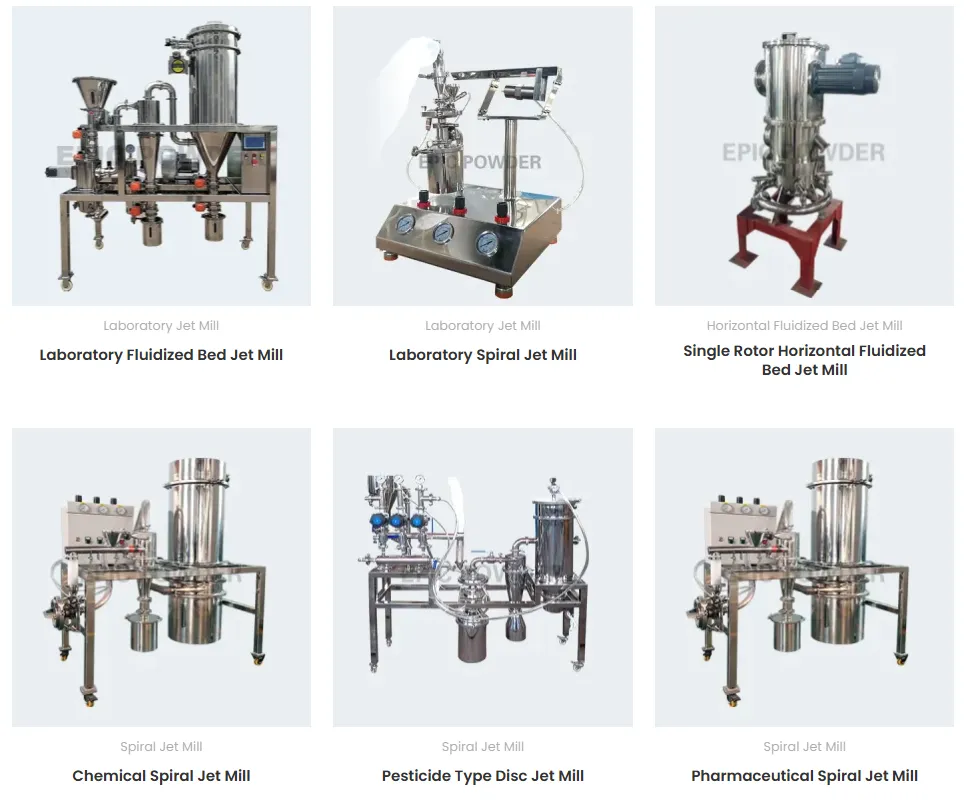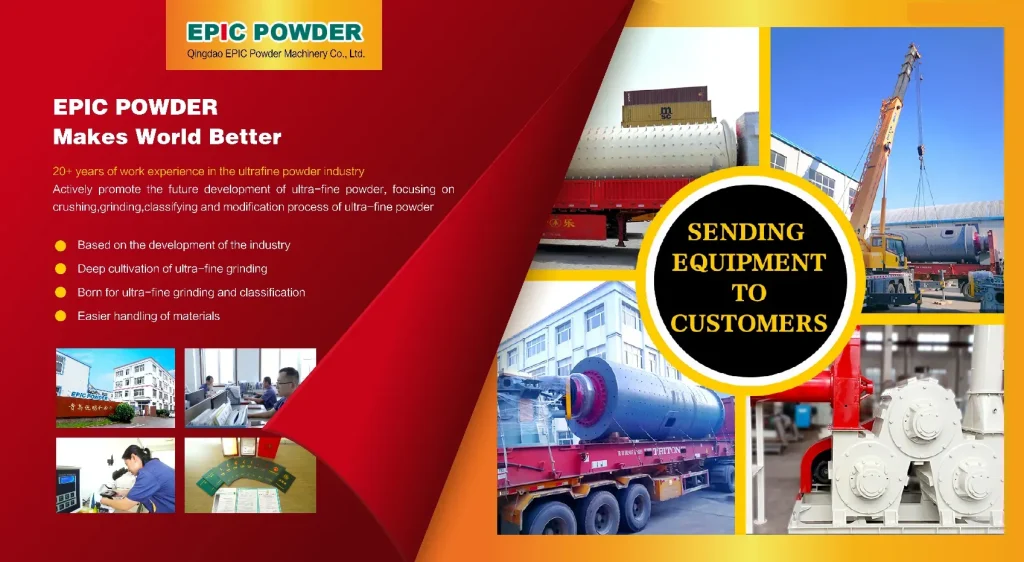Ultrafine powder processing plays an essential role in modern industry. Air jet milling stands out as one of the most advanced and efficient methods for obtaining ultrafine powders.
Q: What are ultrafine powders?
A: Ultrafine powders refer to powdered materials with a particle size of less than 10μm. With advancements in science and technology, many industries require solid materials in powder form as raw materials. These powders must have small particle size, high purity, no impurities, and a specific particle size distribution.

Q: What is air jet milling technology?
A: Air jet milling, also known as air pulverizer, is a method that uses high-speed airflow to cause collisions, impacts, and shear forces between particles to achieve pulverization. It is currently one of the preferred methods for producing high-performance fine powder materials.
Q: What are the characteristics of air jet mills?
A: Products processed by jet mills have uniform fineness, narrow particle size distribution, high purity, smooth surfaces, regular shapes, and good dispersibility. The process causes minimal contamination and can even achieve a pollution-free and sterile environment, making it suitable for applications in food and pharmaceuticals. Additionally, air jet milling generates little heat, making it ideal for heat-sensitive or low-melting-point materials. It offers a high degree of automation and is suitable for large-scale industrial production. It can also combine crushing with subsequent steps such as drying, coating, or surface modification. However, it has drawbacks such as high energy consumption.

Q: What are the applications of jet milling?
A: In military and aerospace fields, ultrafine powders are used to produce stealth materials for aircraft and tanks. Rocket propellants made from oxidizers and catalysts processed by air jet milling can more than double the burning speed.
In electronics, ultrafine iron oxide powder produces high-performance magnetic materials, while ultrafine silicon oxide powder is used for high-performance resistors. Ultrafine high-purity alumina powder is used to manufacture sapphire substrates for LED chips, offering stability, high light transmittance, and no absorption of visible light. Molybdenum powder processed by air jet milling exhibits smaller particle size, narrower distribution, uniform morphology, and higher apparent and tap densities, making it ideal for light bulbs, electronic tubes, and integrated circuits.
In new energy applications, air jet-milled materials offer fine average particle size, narrow distribution, smooth surfaces, regular shapes, high purity, strong activity, and good dispersibility, meeting the requirements for electrode materials. Typical materials include lithium manganate, lithium cobaltate, lithium iron phosphate, lithium carbonate, spherical graphite, petroleum coke, pitch coke, ternary materials, nickel-hydrogen alloys, ferrous oxalate, lithium titanate, and lithium nickel manganese oxide.
Q: Why is air jet milling important?
A: Air jet milling is a crucial technology for processing micro- and nano-sized powders. Its development and application significantly improve resource utilization efficiency.
About Epic Powder
At Epic Powder, we specialize in advanced air jet milling technology to deliver ultrafine powders with exceptional purity, precise particle size distribution, and superior performance. Our solutions cater to a wide range of industries, including electronics, aerospace, energy, and pharmaceuticals, ensuring high-quality materials for cutting-edge applications. With a commitment to innovation and sustainability, Epic Powder helps customers achieve greater efficiency and product excellence.
